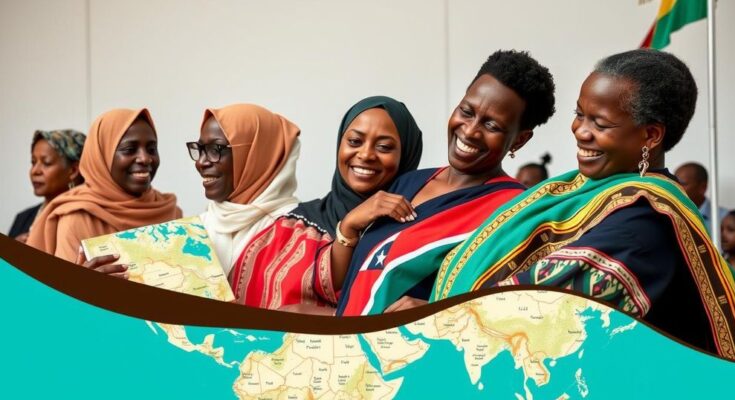Somalia and Tanzania have signed agreements to enhance cooperation in multiple sectors, including defense, tourism, health, and aviation. This initiative marks a significant step toward regional integration and economic recovery for Somalia. Both countries aim to leverage these partnerships for mutual benefits, including improved security, cultural exchange, and joint responses to health emergencies. The agreements were facilitated by discussions between the presidents of both nations earlier this year, signaling a commitment to a shared vision for East Africa’s development.
Somalia and Tanzania have formalized their commitment to enhanced cooperation through the signing of multiple agreements on defense, tourism, health, aviation, and broad diplomatic relations. This significant ceremony took place in Mogadishu and was attended by high-ranking officials, including ministers from both nations’ foreign affairs, defense, and tourism sectors. The agreements signify a proactive step towards fostering not only bilateral ties but also wider integration within the East African Community (EAC).
The significance of these accords lies in their potential to revitalize Somalia’s economy amidst its recovery from prolonged conflicts while enabling Tanzania to expand its regional economic partnerships. Analysts view this as a model for other African nations aspiring for synergistic relations, emphasizing that the true measure of success will rely on the effective implementation of these accords. This partnership could lead to expanded trade and investments, enhancing job creation, security, and cultural exchanges.
A pivotal aspect of the agreements is their focus on defense cooperation, particularly in counter-terrorism and maritime security within the Indian Ocean. With Somalia grappling with piracy and insurgent threats, this collaboration is expected to promote regional peace. Additionally, both nations envision leveraging cultural heritage, tourism, and improved connectivity; beneficially engaging with established attractions in Tanzania, such as Zanzibar and Mount Kilimanjaro.
The health agreements are poised to facilitate medical training and coordinated responses to public health emergencies, especially in light of pandemic threats. Key to this development is the establishment of direct flights between Mogadishu and Dar es Salaam, which will enhance travel for business, tourism, and personal exchanges. Increased air connectivity is anticipated to stimulate economic growth by reducing travel times and costs.
The far-reaching agreements also cover commitments in education, trade facilitation, and environmental conservation, including scholarship programs and joint climate change initiatives. These efforts stem from discussions initiated during President Hassan Sheikh Mohamud’s visit to Dar es Salaam earlier this year, where he and President Samia Suluhu Hassan articulated a shared vision for sustainable development in East Africa.
The establishment of agreements between Somalia and Tanzania aligns with a broader objective of enhancing regional cooperation within the East African Community (EAC). Both nations have expressed intentions to bolster ties, particularly in areas that have strategic implications for economic recovery, security, and cultural interaction. Somalia, emerging from decades of conflict, seeks to stabilize and grow its economy, while Tanzania aims to consolidate its economic influence in the region. The agreements represent a shift towards constructive diplomatic endeavors that may serve as a template for collaboration among African nations.
In conclusion, the recent agreements between Somalia and Tanzania epitomize a significant advancement in regional cooperation, promising mutual benefits across various sectors, including defense, tourism, health, and education. The anticipated outcomes highlight a commitment to not only bolster economic recovery and security within Somalia but also to promote cultural exchanges and collaboration in addressing shared challenges. The fruitful implementation of these accords could serve as a model for further integration within the East African region and beyond.
Original Source: www.ippmedia.com




